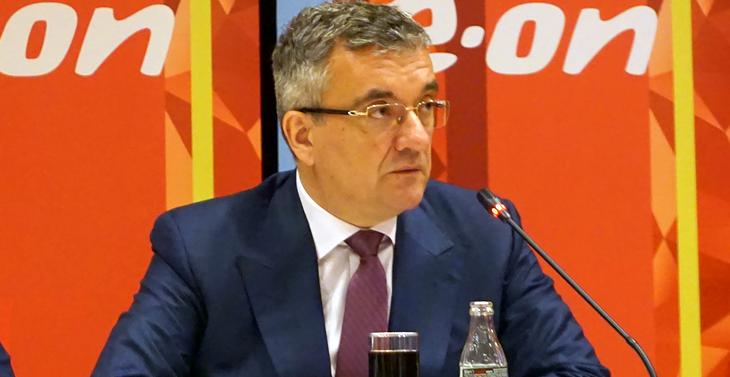If we offer marks on a scale of 1 to 10, on how ready is Romania for technologies such as blockchain or smart storage solutions, perhaps the grades would be of 5 and 4 respectively, said Frank Hajdinjak, Director General of E.ON Romania, responding to energynomics.ro question. Hajdinjak also said the merger with RWE would not affect the activities of the Romanian group. At the same time, E.ON does not negotiate the takeover of the Romanian-owned packages in its own subsidiaries and aims to increase the volume of its own investments to 114 million euros, compared to 104 last year, if the authorities will not impose a tariff reduction that would affect the turnover.
Hajdinjak says he is pleased with the smart metering program so far, but authorities have to decide whether they want more high-quality services or a lower tariff that would lead to a decrease in network investment. By the end of last year approximately 252,000 smart meters were installed, of which about 21,000 units in 2017. During the period 2018-2020, the installation of over 200,000 units is planned, the value of the investment being about 52 million lei (11 million euro).
“We are pleased with the intelligent metering process that has been carried out so far. Speaking of the distribution principles, however, Romania will have to decide: How would the network look like in the future? Will it be a poor and cheap network, will it be a standard network that will meet European average standards, or will it be a fully digitalized network where we have multiple services?”, answered Hajdinjak to an energynomics.ro question.
But how prepared is the country for digitalization? On a scale of 1 to 10, Romania gets the 5th mark when it comes to digitalizing and blockchain projects and probably 4 when it comes to intelligent storage projects.
“Blockchain is a powerful technology and will have a major impact on the electricity market in the future because it offers a new business model. For Romania it is very early, so we would not give it more than 5 … We work internally on some blockchain initiatives, applications that help consumers to change the way they contract energy,” Hajdinjak said.
When it comes to storage – it is becoming more and more important for network stabilization. “We see potential in the private market for intelligent consumer solutions, e-solutions… It is an area where we grow … Again, compared to other countries, Romania can get the 4th mark,” he said he.
Investments of 104 million euro in 2017
The companies in the E.ON Romania group have invested last year 475 million lei (104 million euros), prioritarily for the modernization of natural gas and electricity distribution networks. More than half a billion lei of the same destination is budgeted for this year.
Natural gas – Over 200 million lei (43 million euros) have been invested in 2017, the distribution system being refurbished and modernized over a length of nearly 570 km. At the same time, the network has been expanded by more than 90 km, in particular connections for new consumers.
Electricity – The value of investments amounted to about 240 million lei (52 million euros). The main destinations of the investments were the modernization and refurbishment of electrical networks, the automation of the distribution system, the replacement of transformers and smart metering. Last year up to 1,700 km of the current power network was upgraded.
Projects with European funding – Delgaz Grid obtained European co-financing of over 10 million lei (2.3 million euros) for the modernization of the Harlau, Pascani and Gorban (110 / 20kV) transformation stations in Iasi, with a total investment of 16.3 million lei (3.5 million euros). It is the fourth project for which the company has obtained a grant to invest in networks. Thus, the total value of these investments exceeds 92 million lei (over 20 million euros), out of which 38 million lei (over 8.2 million euros) are non-reimbursable funds.
Following the significant investments made over the last years in the electricity grid, in the period 2008-2017 the number of interruptions decreased by about 54% and their duration by about 60%. On the gas side, in 2017 there was a decrease of more than 50% in the number of network failures compared to 2010.
“There is a need for continued investment in the networks to bring us closer to the current performance level in the developed countries of the European Union, the ultimate consumer being the beneficiary. For this, however, it is essential to have a regulatory framework that stimulates investment and innovation in the distribution of electricity and natural gas,” said Hajdinjak.
Since its establishment in Romania in 2005, E.ON has made investments of over 6 billion lei (1.5 billion euros). Also, the contributions made in these years to the state budget and local budgets amount to about 1.9 billion euros.

